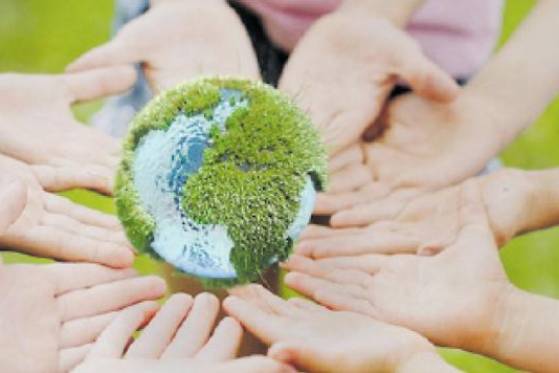The 2030 Agenda for Sustainable Development, which includes 17 Sustainable Development Goals (SDGs), was adopted by the United Nations (UN) member states in 2015. This agenda provides a holistic approach to development, addressing the economic, social, and environmental challenges that the world faces today.
Sustainable development is not entirely a new or a western concept, but a concept embedded in our lifestyles through our culture, enriched with Buddhist philosophy. One good example can be taken from the Third Century BC, when Arahath Mahinda Thera preached to King Devanampiya Tissa and made him understand that the land belongs to the people and also to all other living beings, whilst the king was only the guardian. This is a Buddhist tenet on conservation and sustainability. Likewise, it is a concept which has been practiced over time, and started to fade away as a result of industrialisation in the recent decades.
Achieving sustainable consumption has been recognised as an integral part of the 2030 Agenda through SDG 12. Sustainable consumption means to consume in a way that allows us to preserve our resources and the environment to the extent possible. As we all know, carbon dioxide emissions cause global warming and ocean acidification; it can also influence animal populations through entering the terrestrial and aquatic food webs, and can alter ecosystem functioning.
Indeed, the Government has a key role to play in the implementation of and accelerating the progress towards achieving the SDGs. Nevertheless, we the people carry the biggest responsibility towards making the planet healthy. The collective impact of our mindful eco-friendly consumption on the environment that we all depend on becomes enormous. It allows to protect natural habitats spread across both land and water, thus leaving space for all the living beings on earth.
Many of us are not aware that the small choices we make on a daily basis can actually have a significant impact on global environmental issues. That is due to lack of information on how to improve our own environmental performances. To put it simply, it’s all about buying better, consuming better, and throwing away better. This article will educate you on some smart choices you can make to help slow down and eventually stop the demise of our planet.
Transportation releases a devastating percentage of carbon dioxide into the atmosphere, which leads us to rethink the promotion of earth-friendly transportation options. Walking, cycling, and using public transportation whenever possible are some of the options to limit your carbon footprint on earth. These options are also economical. Social distancing regulations due to Covid-19 have given us the opportunity to explore new potentials, like work from home (WFH), virtual meetings, etc., to reduce travel or the need to travel. Moreover, you could shift to more energy-efficient technologies like hybrid or electric vehicles.
You can also switch to earth-friendly diet choices such as by eating local, eating fresh, eating less meat, and not eating endangered species. New research findings reveal that eating less beef will reduce the carbon footprint significantly. According to the Food and Agriculture Organisation (FAO) of the US, beef has the highest emission intensities, which is 300 kg carbon dioxide equivalents (CO2-eq.) per kg of protein produced. Cow milk and other meat products such as chicken and pork have lower global average emission intensities below 100 kg CO2-eq. per kg of protein produced. Hence, the Government decision to ban cattle slaughter is a laudable intervention.
Plastic pollution is one of the most catastrophic forms of waste pollution. Plastic takes a long time to decompose and ends up in landfills or oceans, posing a greater impact on wildlife, wildlife habitats, and humans. According to the fact sheet of the UN Ocean Conference, plastic waste kills up to one million seabirds, 100,000 sea mammals, marine turtles, and countless fish each year. Since it is cheap and hard to replace, plastic production is still at a higher level and plastic recycling has a long way to go. Each time you make the choice to avoid using plastic or recycle plastic products, you lower the risk of environmental damage.
To make a real environmental change, you can shift to reusable shopping bags and containers, and carry a reusable water bottle. Avoid heavily and unnecessarily packaged foods as much as possible to limit the waste in your consumption cycle. You could also install a water filtration system at home to eliminate the need for bottled water. A recently launched programme to recycle used carbon pen tubes and toothbrushes is a good waste sorting initiative.
Composting your organic waste is another smart choice to reduce waste as well as to make rich soil for planting. Instead of throwing away most of the remains of your food like tea bags, egg shells, and fruit and vegetable scraps, etc., it can be composted in your own garden.
Simple and smart choices will help us to fulfil our responsibility towards making our planet healthy and share it with all other living beings.
(The writer is the Assistant Director of the Sustainable Development Council of Sri Lanka)
The Morning

